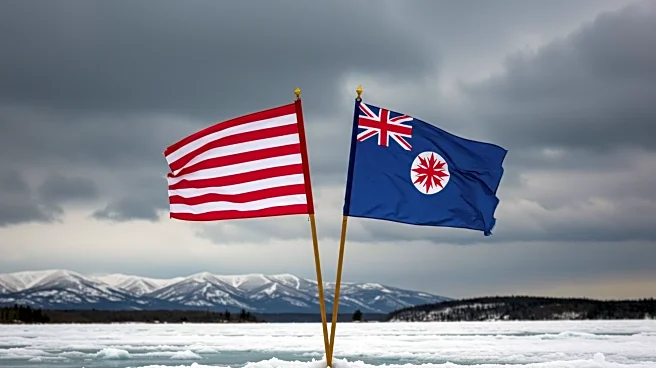What is the story about?
What's Happening?
President Trump welcomed Russian President Vladimir Putin to a summit in Anchorage, Alaska, with the aim of discussing the ongoing conflict in Ukraine. The summit, marked by ceremonial displays such as fighter jets and a red carpet, ended without a clear agreement. Despite discussions lasting nearly three hours, both leaders left the scheduled news conference without detailing any specific achievements. Trump emphasized the need for Ukrainian President Volodymyr Zelensky to 'make a deal' to end the war, suggesting a peace agreement as the best solution. The summit highlighted the challenges in reaching a consensus, with Trump acknowledging progress but no definitive deal.
Why It's Important?
The summit's inconclusive outcome underscores the complexities of diplomatic negotiations involving major global powers. The lack of a clear agreement may prolong the conflict in Ukraine, affecting regional stability and international relations. Trump's approach to welcoming Putin back into diplomatic discussions could alter the dynamics of Western isolation efforts against Russia. The meeting's failure to produce tangible results may impact U.S. foreign policy and its role in mediating international conflicts. Stakeholders, including European allies and Ukrainian leadership, may face increased pressure to find alternative solutions.
What's Next?
President Trump indicated a willingness to participate in future meetings involving Putin and Zelensky, suggesting ongoing diplomatic efforts. Zelensky is expected to visit Washington, D.C., for further discussions. The potential for a trilateral meeting remains uncertain, with Trump and Putin hinting at a follow-up meeting possibly excluding Zelensky. The continuation of Russian military actions in Ukraine during the summit suggests ongoing challenges in achieving a ceasefire. The international community will likely monitor these developments closely, assessing their impact on global diplomacy and security.
Beyond the Headlines
The summit's setting in Alaska, outside the jurisdiction of the International Criminal Court, highlights strategic considerations in diplomatic engagements. Trump's decision to host Putin may signal a shift in U.S. diplomatic strategy, potentially affecting alliances and perceptions of U.S. leadership. The inclusion of aides in the meeting, deviating from initial plans for a one-on-one discussion, suggests a move towards greater transparency in diplomatic negotiations. The summit's outcome may influence future U.S.-Russia relations and the broader geopolitical landscape.


















